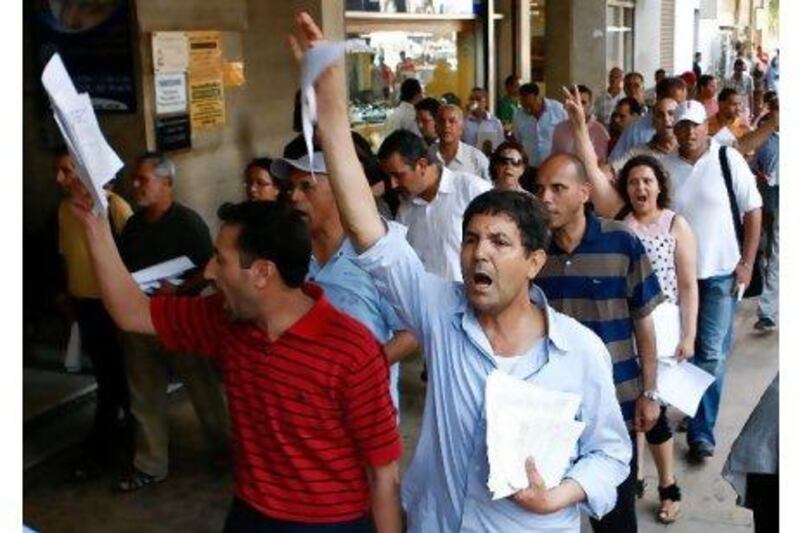RABAT // About 1,000 pro-democracy demonstrators marched through the centre of Morocco's capital yesterday to protest against a new constitution they say fails to deliver sought-after reforms.
The show of strength by the February 20 pro-democracy movement was the first major protest since Moroccans voted on Friday to approve the constitution, that curbs the near absolute powers of King Mohammed VI, in a landslide referendum.
The February 20 Movement, which has organised weeks of demonstrations calling for reforms in the Arab world's oldest reigning monarchy, has denounced the new constitution as a sham.
"This constitution does nothing to change Morocco. What we want is a new form of government, the end of corruption and a new economic system," said Omar Radi of the February 20 Movement.
He said the new constitution would not placate protesters and that he expected more would now take to the streets in anger over the authorities' unwillingness to pursue genuine reforms.
"We need to keep pressure from the streets and I think many people will join us after this charade of a referendum," Mr Radi said.
The king offered the reforms last month following weeks of protests modelled on the Arab Spring uprisings that ousted long-serving leaders in Tunisia and Egypt and have shaken much of the region.
Under the new constitution, the king will remain head of state, the military, and the Islamic faith in Morocco, but the prime minister, chosen from the largest party elected to parliament, will take over as the head of government.
Other changes would grant more power to parliament, introduce an independent judiciary and provide new guarantees of civil liberties.
Officials say the new constitution is the first step in a process of democratic reform and that protesters should work with authorities to change the country.
"I would have preferred that these people, who say they are democrats, draw conclusions from the sovereign choice made by the Moroccan people," said the communications minister, Khalid Naciri, a spokesman for the government.
"They have a duty to adjust their demands to the new reality . . . and make a positive contribution to the common creation of a new Morocco. Protesting in the streets should not be an end to itself," he said.
A security source said the authorities would not interfere with the demonstrations as long as protesters acted within the law.
Up to now authorities have been relatively tolerant of demonstrations and Mr Radi said any attempt to crack down would backfire.
"If they try to prevent this they will only add fuel to the fire," he said.
Western leaders have hailed Friday's vote and the new constitution, while pressing the king to pursue further reforms.
On Saturday, the United States, European Union, France and Spain welcomed the referendum, with the EU adding: "Now we encourage the swift and effective implementation of this reform agenda."
Most analysts say it is likely the authorities will continue to tolerate the protests, which have been peaceful and have not urged the overthrow of the king, who is widely revered.
"If the February 20 Movement now plays the role of a 'monitor' by demanding reforms linked with the implementation of the constitution, like the fight against corruption, I think this is something the authorities need," said Mohamed Tozy, a political-science professor at Casablanca's Hassan II University. "But if it moves toward provocation, there risks being a more forceful response from the authorities," he said.
* Associated Press with additional reporting from Agence France-Presse





